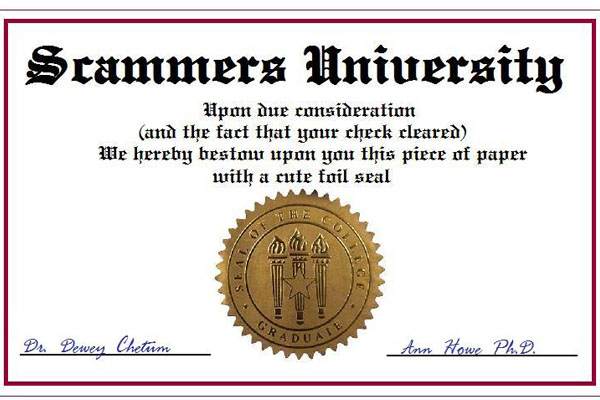Fake certificate mills closed down

Afterschool Team
May 20, 2015
In academia, diploma mills have long been seen as a nuisance. But the proliferation of Internet-based degree schemes has raised concerns about their possible use in immigration fraud, and about dangers they may pose to public safety and legal systems.
The Indonesian government has begun the crackdown on institutions selling and producing fake certificates.
Minister of Higher Education Research and Technology Mohamad Nasir said the illegal practice was revealed due to reports by the locals. Based on the reports, there were 18 higher education institutions involved in the scandalous transaction located in Jakarta, Bogor, Depok, Tangerang, Bekasi and Kupang.
The modus operandi usually involves the institution awarding a fake degree certificate to graduates without going through regular studying process. Students of these institutions had to attend class for a handful of days and will receive their degree paying a certain amount of money.
Another case became public when the certificates were signed by a rector with an unrecognized certificate. The rector of one of the universities in Kupang had claimed to receive his PhD from a university that does not exist (Jakarta branch of Barkley University).
Barkley University claims that its degrees are recognized all over the world. New York Times has busted other online universities with the same bogus claims such as Columbiana University and Grant Town University.
“We host one of the most renowned faculty in the world,” boasts a woman introduced in one promotional video as the head of a law school. “Come be a part of Newford University to soar the sky of excellence.”
New York Times writer, Declan Walsh believes that the news reports were fabricated, the professors are paid actors and that the university campuses exist only as stock photos on computer servers. The degrees have no true accreditation, according to his research.
The report said very little in this virtual academic realm, appearing to span at least 370 websites, is real — except for the tens of millions of dollars in estimated revenue it gleans each year from many thousands of people around the world, all paid to a secretive Pakistani software company.
The company running this allegedly global scam is known as Axact and all their sites have toll-free American contact numbers and calculatedly familiar-sounding names.
Axact Education Unit in a rebuttal to the claims of fraud has clarified that they indeed provide a comprehensive education management system that benefits diverse bodies of students and caters to all types of educational institutions—online and traditional.
Read more about the story here and the rebuttal by Axact here.




